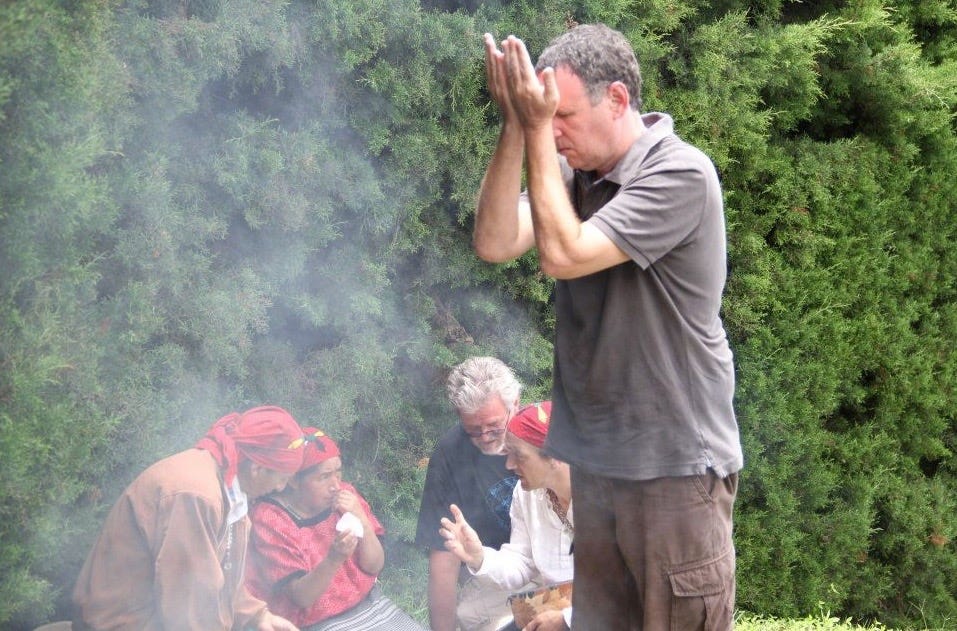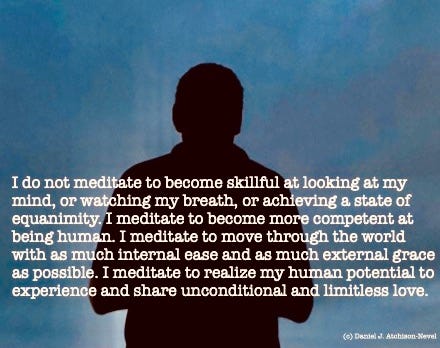Exploring Cultivation
Becoming a more competent human being
I’m often asked exactly what I mean when I use the word “cultivation”. I suppose it is a good thing to define a word or term before using it!
My simplest, working definition for cultivation is meditative and contemplative practices that bring awareness to and develop the mind (cognition and imagination) the senses,(touch, vision, hearing, taste, smell) the embodied emotional experience, (anger, grief, joy, fear, worry) the breath and the spirit to live a more integrated and satisfying human life.
Of course, any word’s meaning is subject to the context in which it is used and the context in which it is being received. All words, but especially special terms such as “cultivation” carry with them layers of meaning that play out and evolve in ordinary language, deeper metaphoric meanings, and are to one degree or another, pregnant with symbolism. Of course, the meaning of a word such as cultivation grows on all these levels along with the growth and development of the speaker or the listener.
In simpler terms, the longer and deeper you cultivate the more levels of metaphoric and symbolic nuance and meaning the word, cultivation, will take on for you. While ordinary or cognitive language seeks to define a word as specifically as possible while limiting its usage to specific contexts metaphoric and symbolic language, the language of the body, breath, and spirit, have ever-expanding contexts and layers of meaning.
Historically this type of cultivation has been done through a wide variety of meditation and contemplation practices, each of which engages and cultivates one or more aspects of cognition, imagination, any or all of the senses, any or all of the emotions, the breath, and the spirit.
I place cultivation practices into two primary contexts, two primary ways of understanding “cultivation” time.
One context, one time, we can name, “dedicated cultivation”. This is when we dedicate a specific time and a specific space to cultivation, a dedicated practice. This is what we commonly think of when we talk about a cultivation or meditation practice. The focus of this practice can be either inwardly or outwardly directed, but the emphasis or primary focus is inward cultivation, even as we “focus” sometimes outward. We have control over where and when we decide to practice “dedicated cultivation”, although it at times feels as if we have no control over what appears or happens during this dedicated cultivation time.
We also, of course, have the rest of our lives when we interact with the world or are at times doing tasks on our own, not necessarily dedicated to cultivation. We can decide, to view and experience any or all of this time as “cultivation” times as well. We simply integrate our cultivation practice into the ordinary times of our lives as we interact with the world.
I call this interactive practice, or integrative cultivation when we cultivate while stepping into whatever role we may be in at any time. In integrative practice, we are integrating with the world in a particular role. Cultivation involves fully embracing these roles. When we are driving we are in the driver role. When we are cooking we are in the cooking role. When we are with our children we are in the parenting role. When we are in our professional roles, for example as a doctor or acupuncturist, we are in our doctor or acupuncturist role. When we engage these roles with awareness, wholly present in the moment, cultivating the experience as a participant-observer, we are integrating our cultivation practice into our daily lives.
This is Integrative Cultivation.
These “two” cultivation contexts are, of course, two aspects of a single whole. Practicing cultivation in both of these contexts, with awareness, I refer to as holistic cultivation.
As we progress in our holistic cultivation practice we realize that the purpose of having a dedicated practice is not to become good at sitting still, mindfully meditating, or mastering any contemplation practice or any moving practice such as Tai Ji or Yoga or Qi Gong. We also realize that the purpose of integrative cultivation is certainly not to become a good driver, or good cook, or the best at any thing.
The purpose, or I should say consequence, of holistic cultivation practice is to become more competent at being human.
Becoming a more competent human being! My friends, this is a consequence I know we will ALL benefit from!







Hi Dan. Is there a way to ask you a question on a private chat? Thank you. It's Rebecca.
thank you! this was (as always) great!